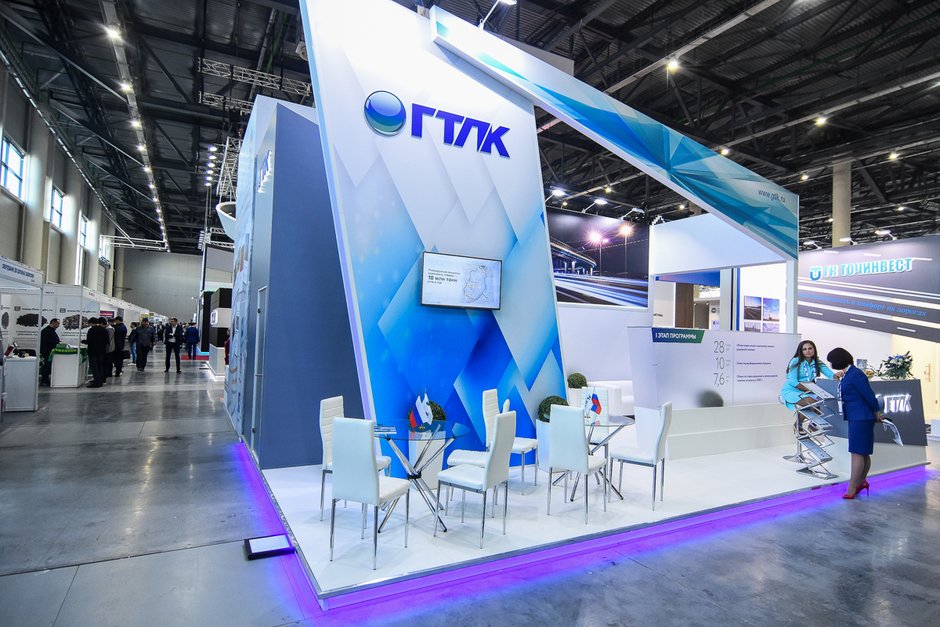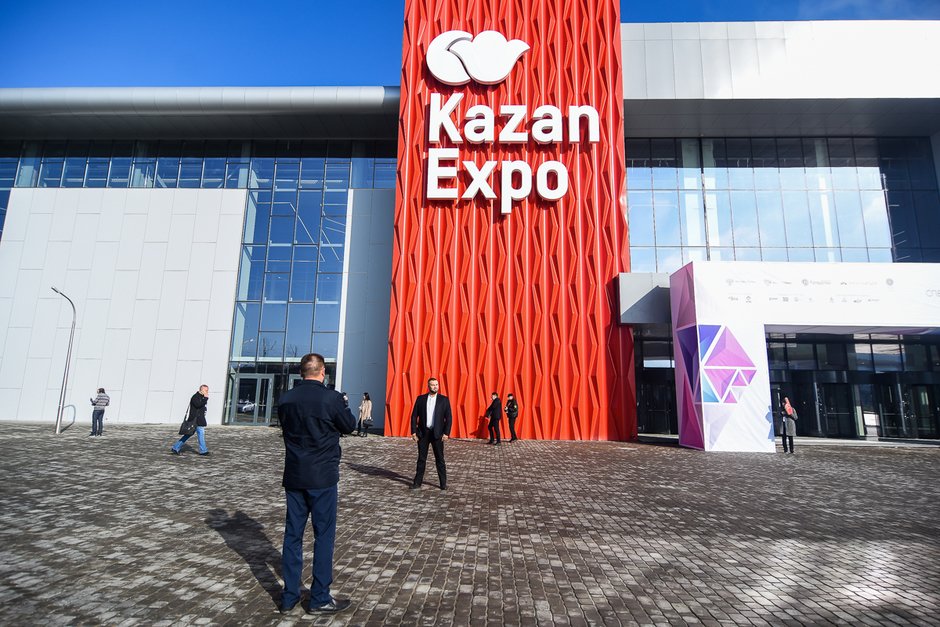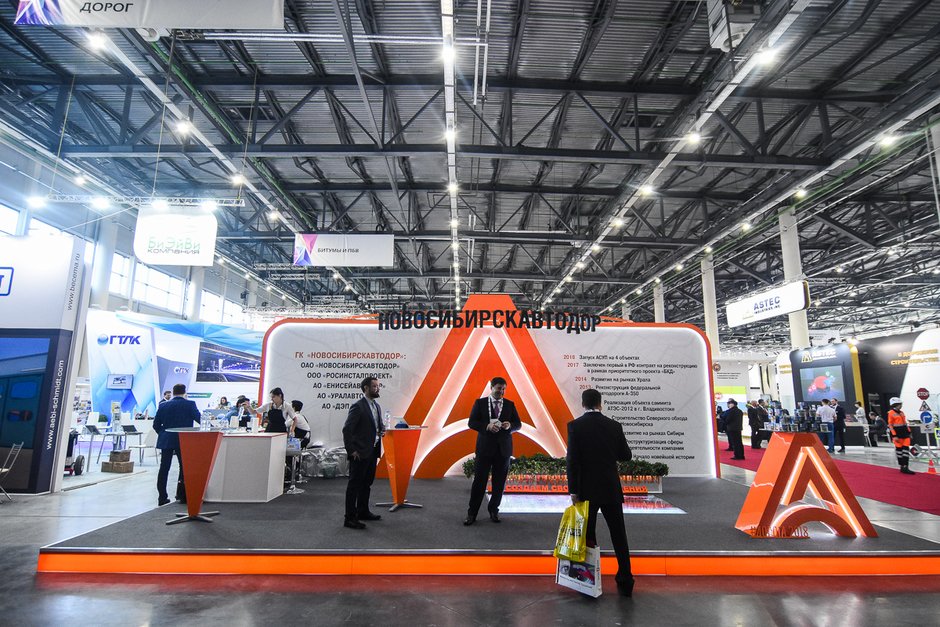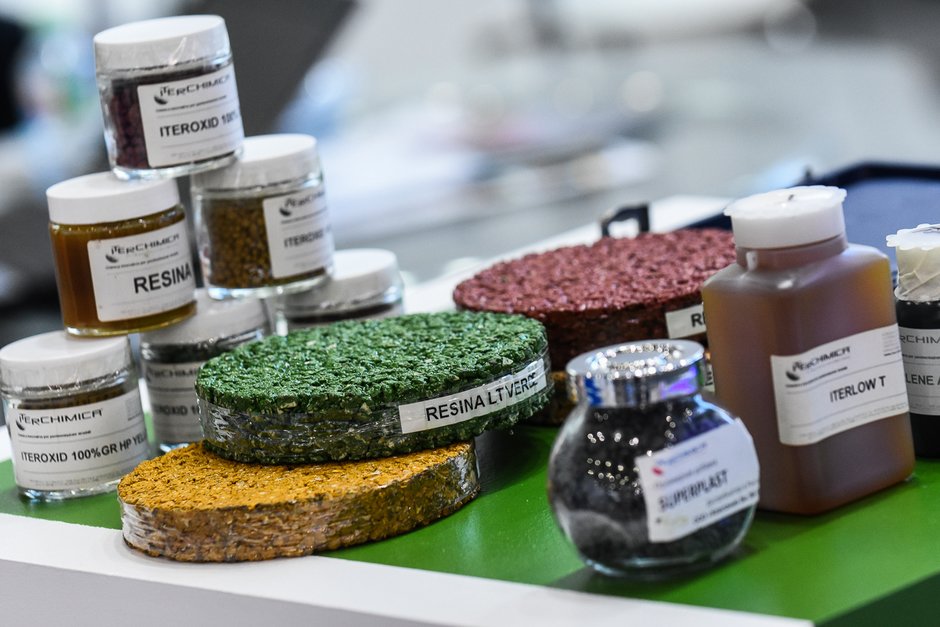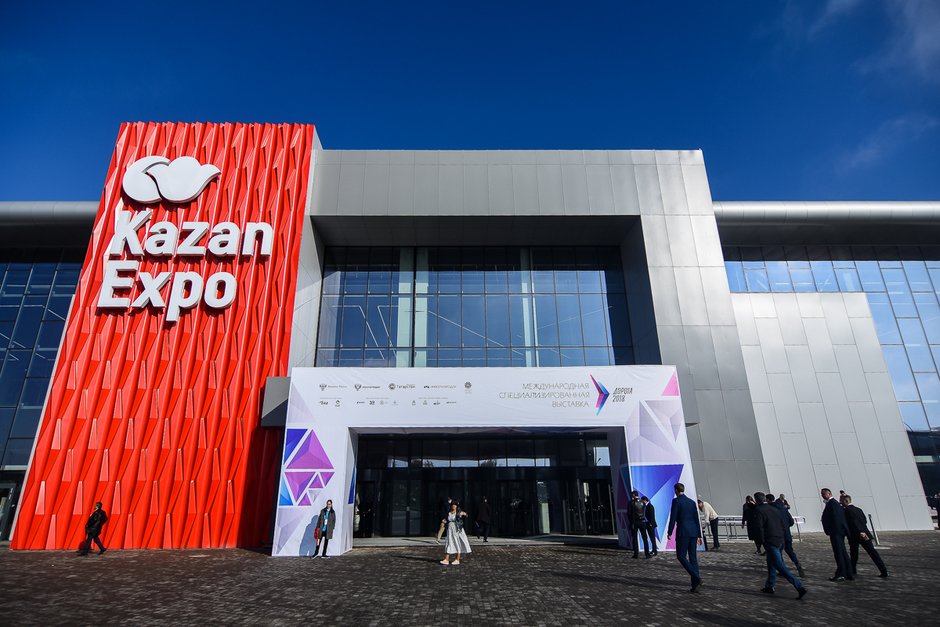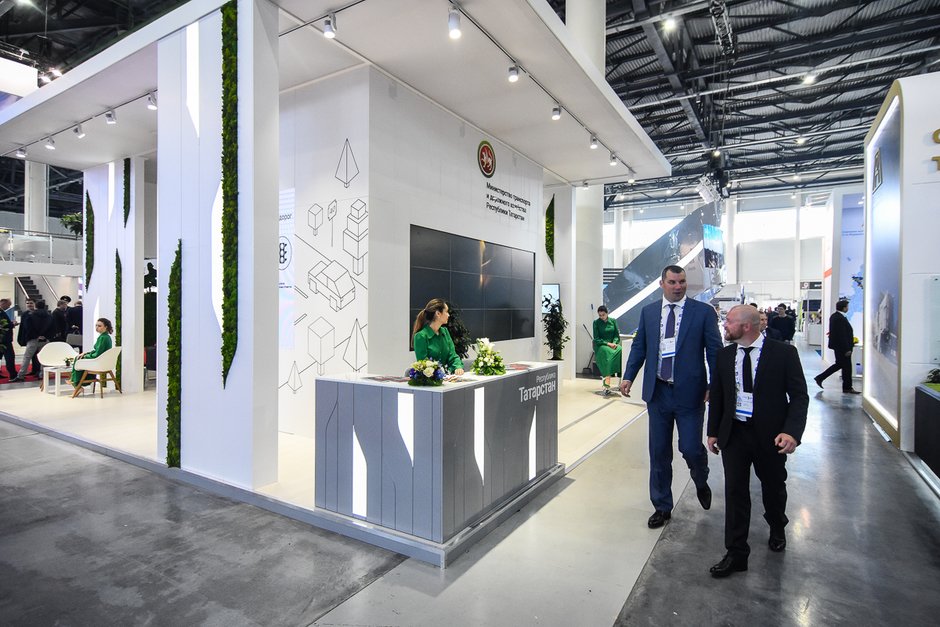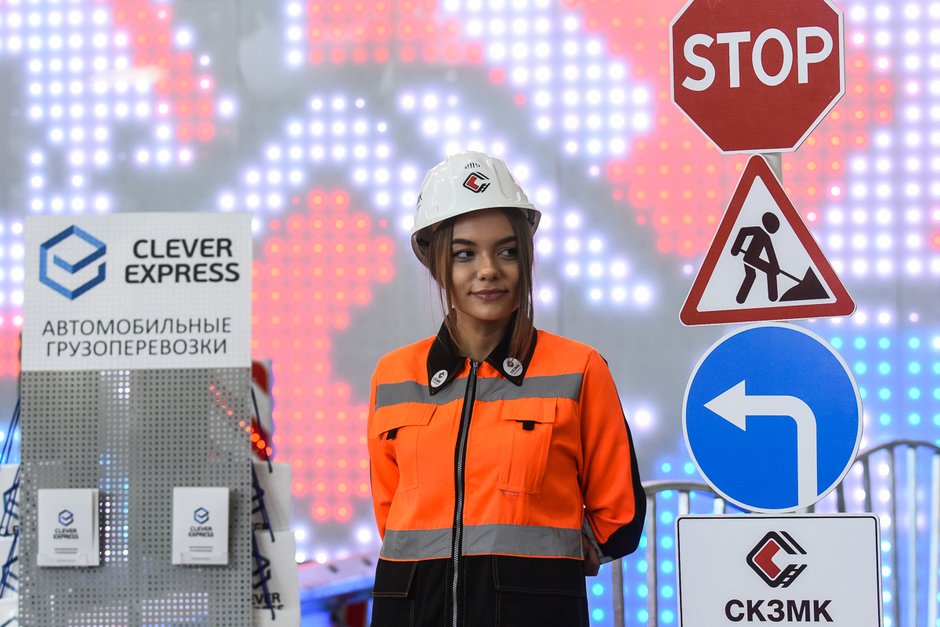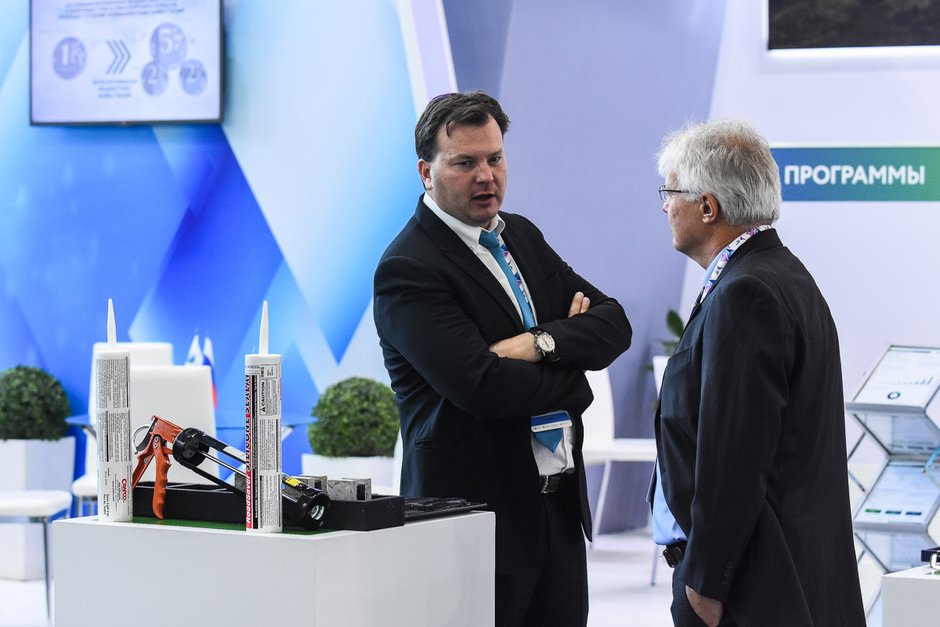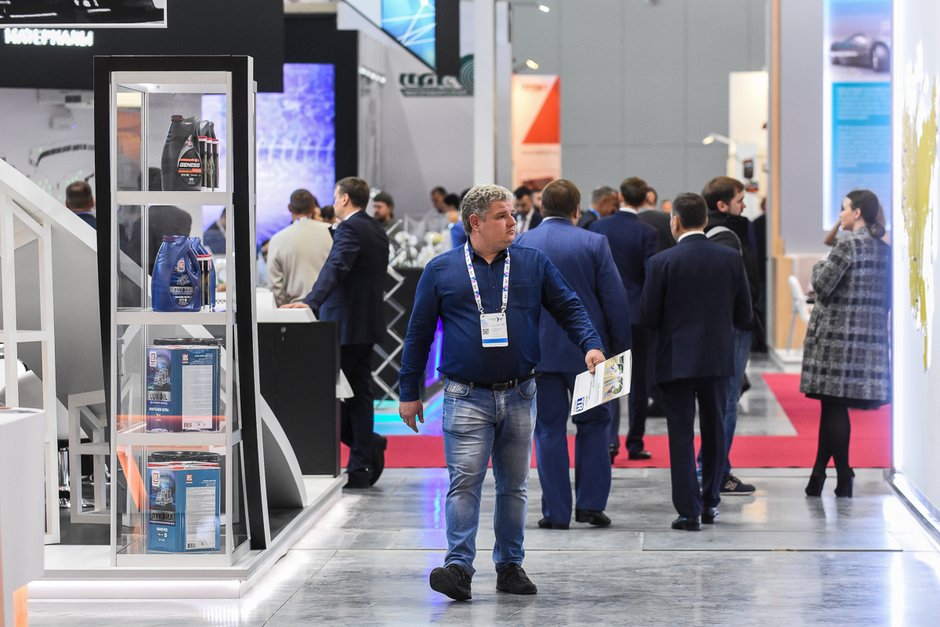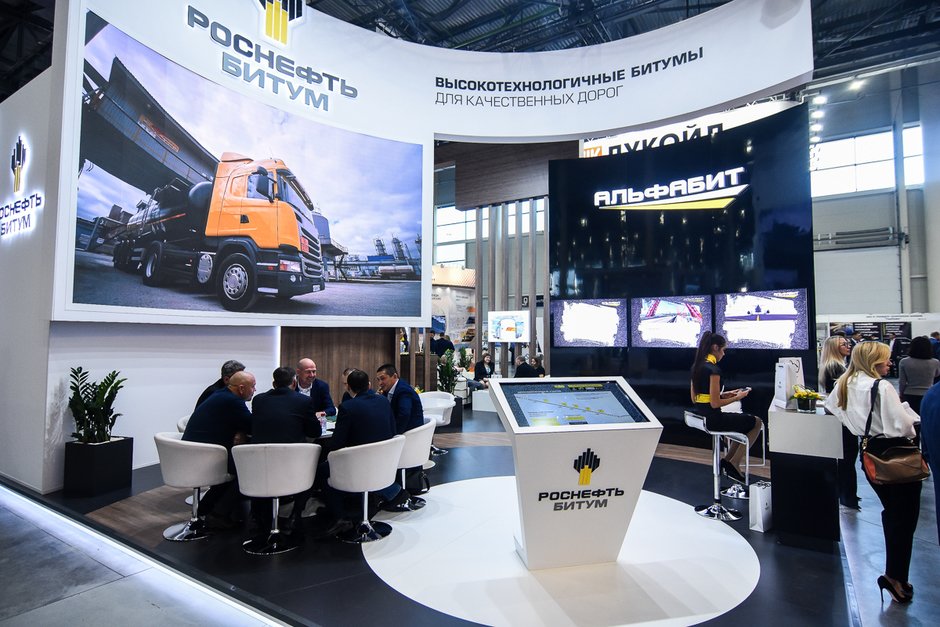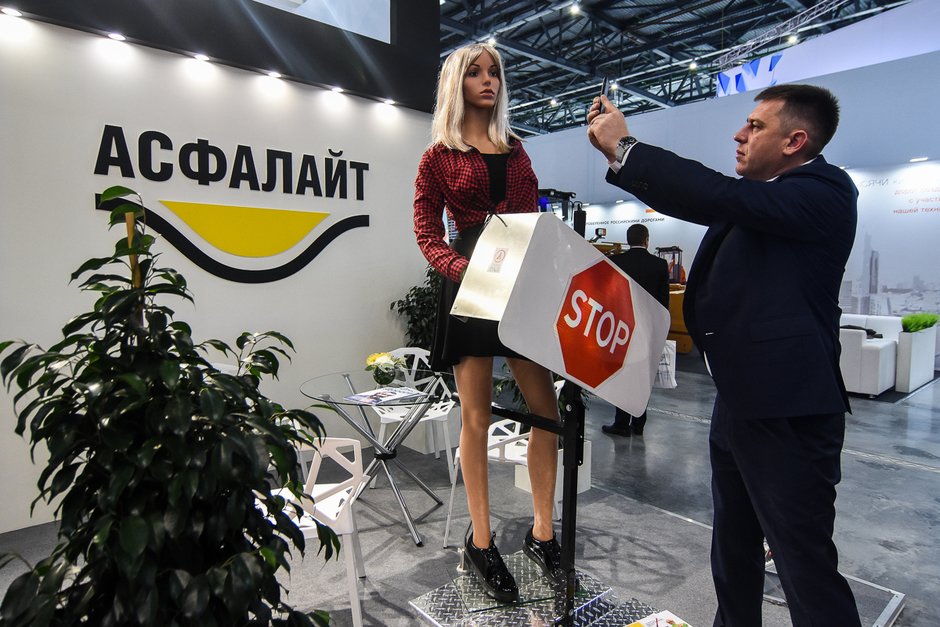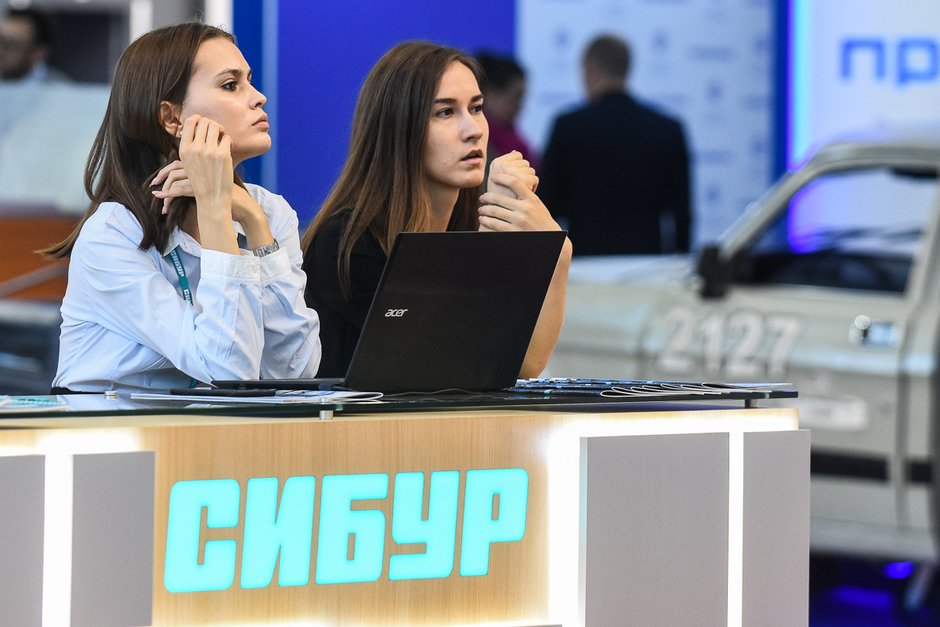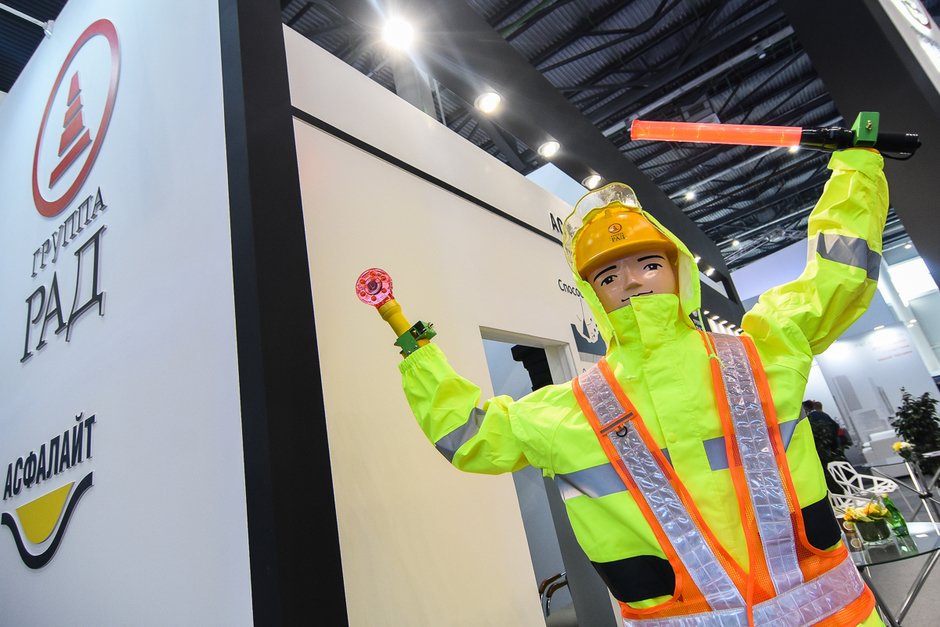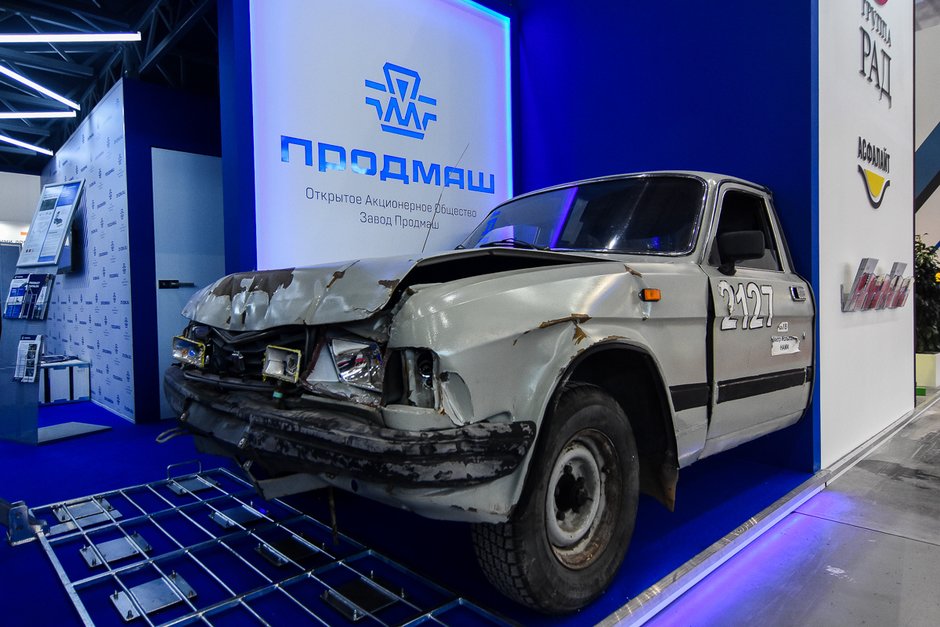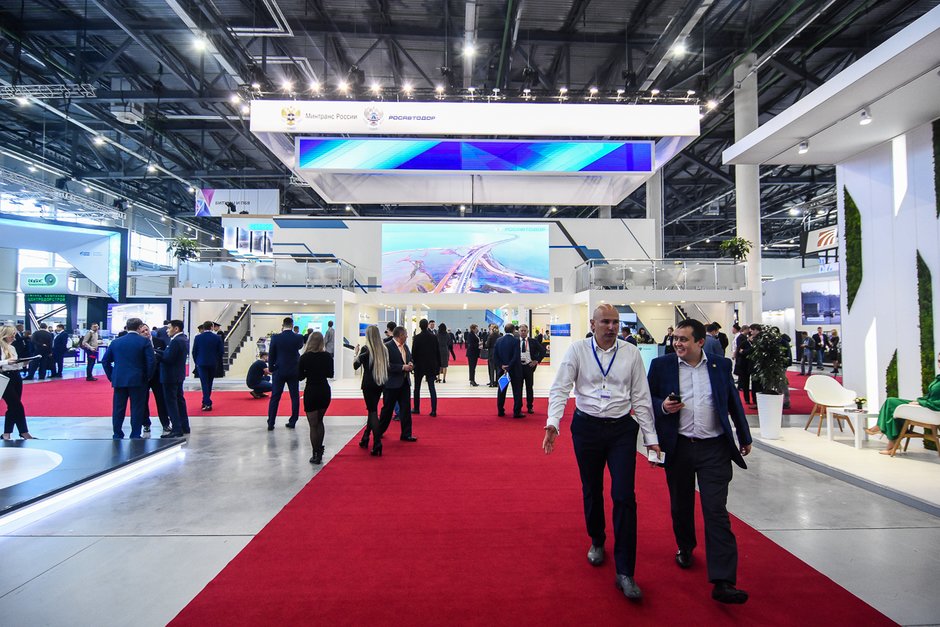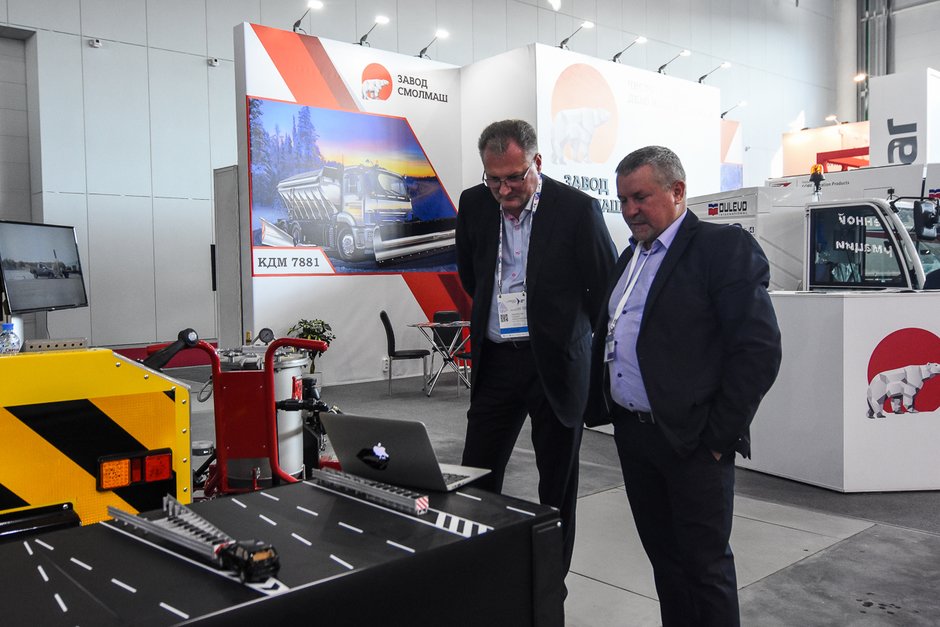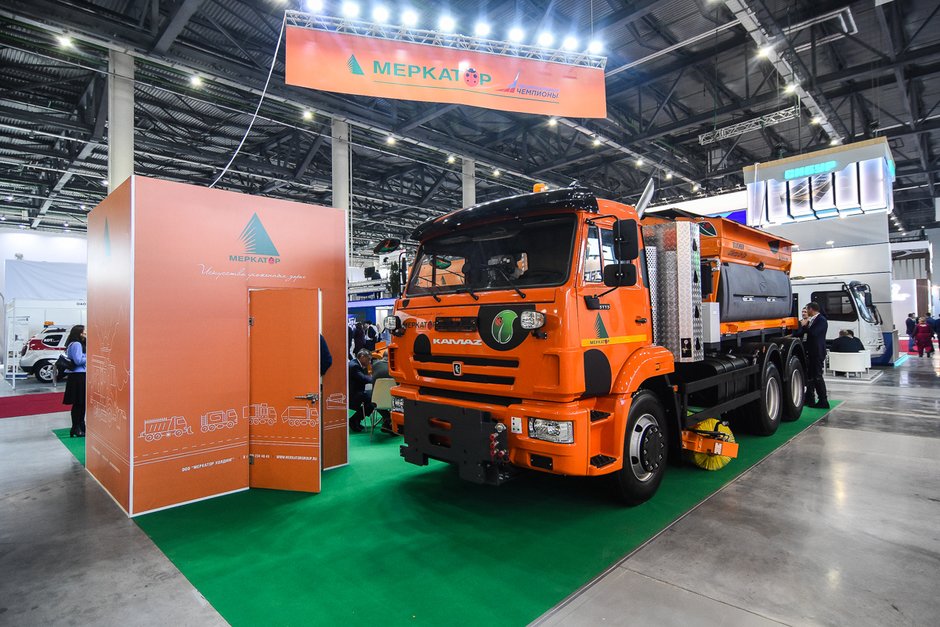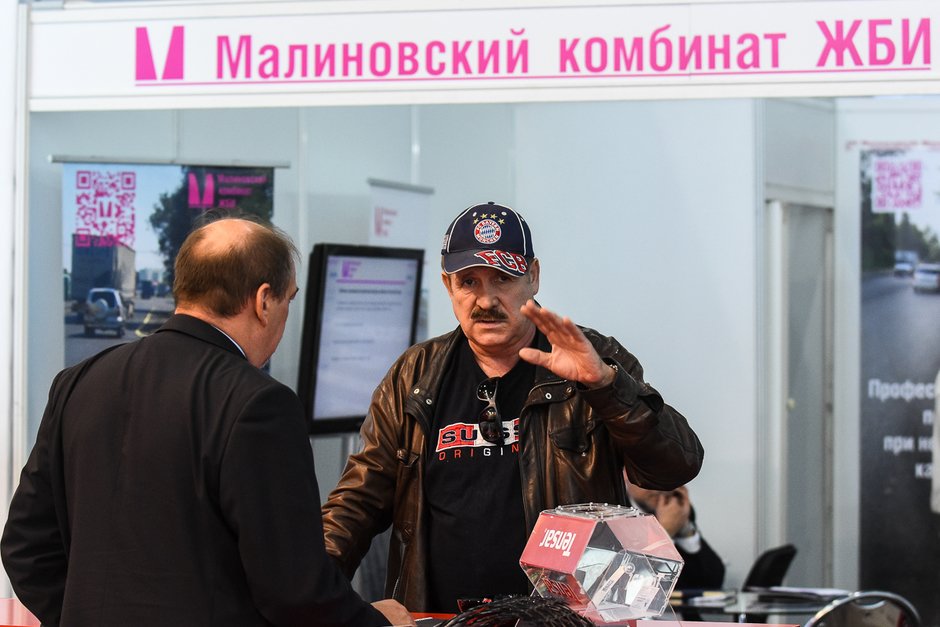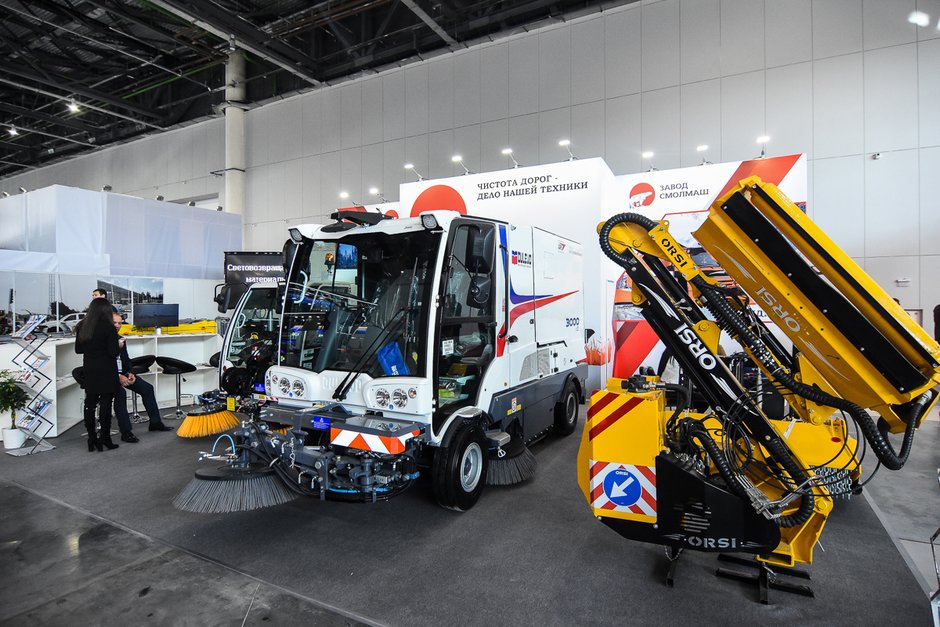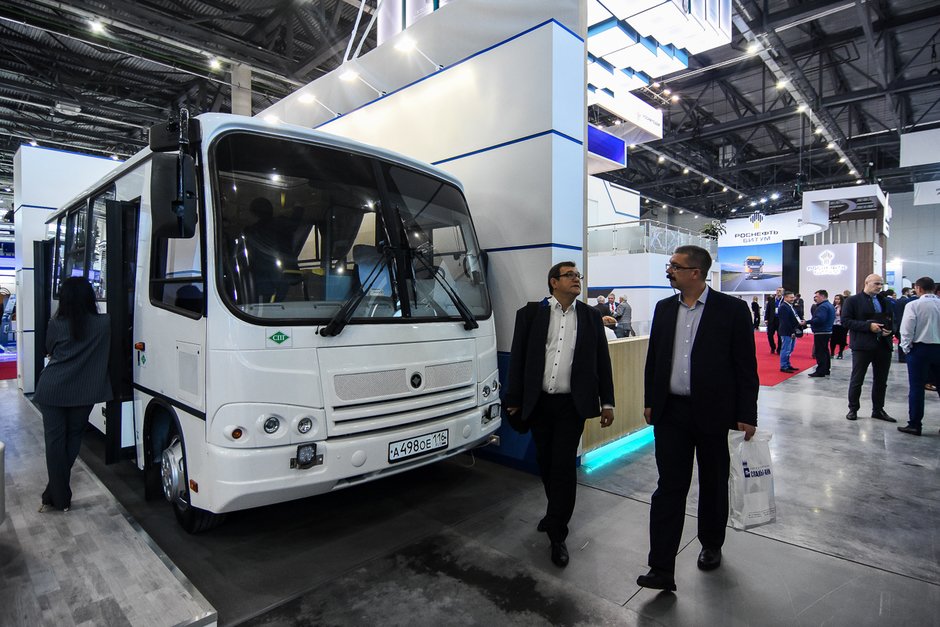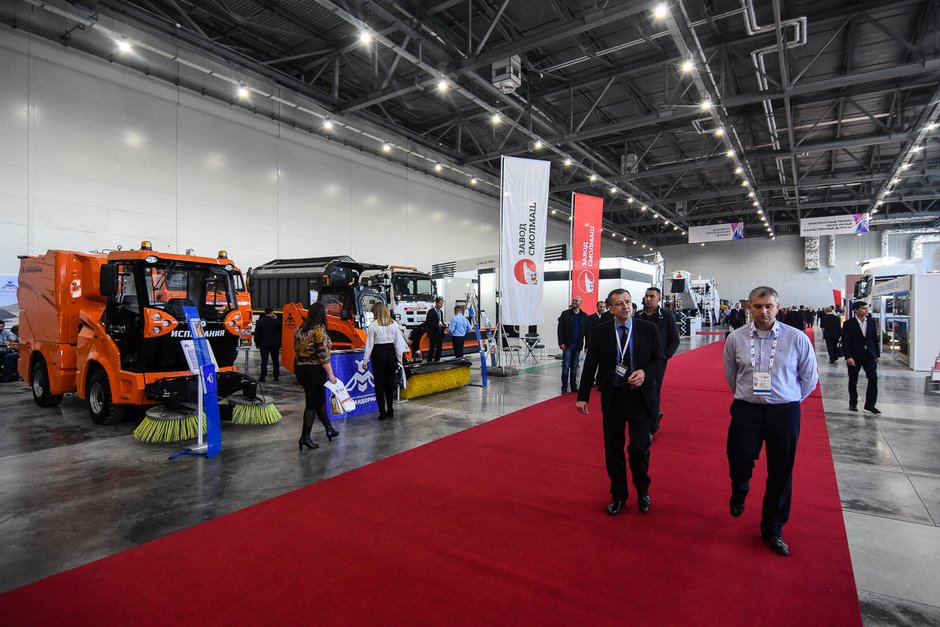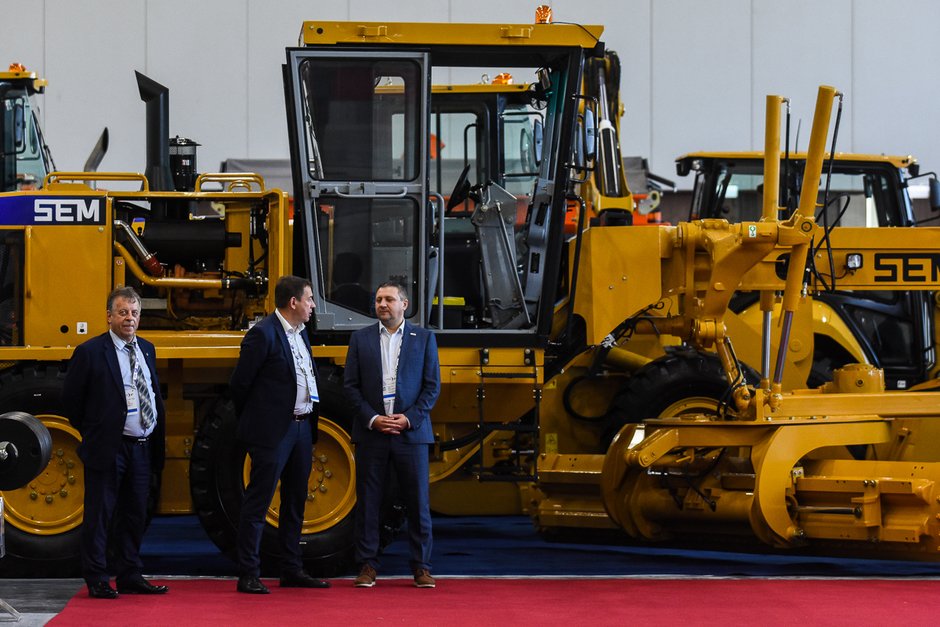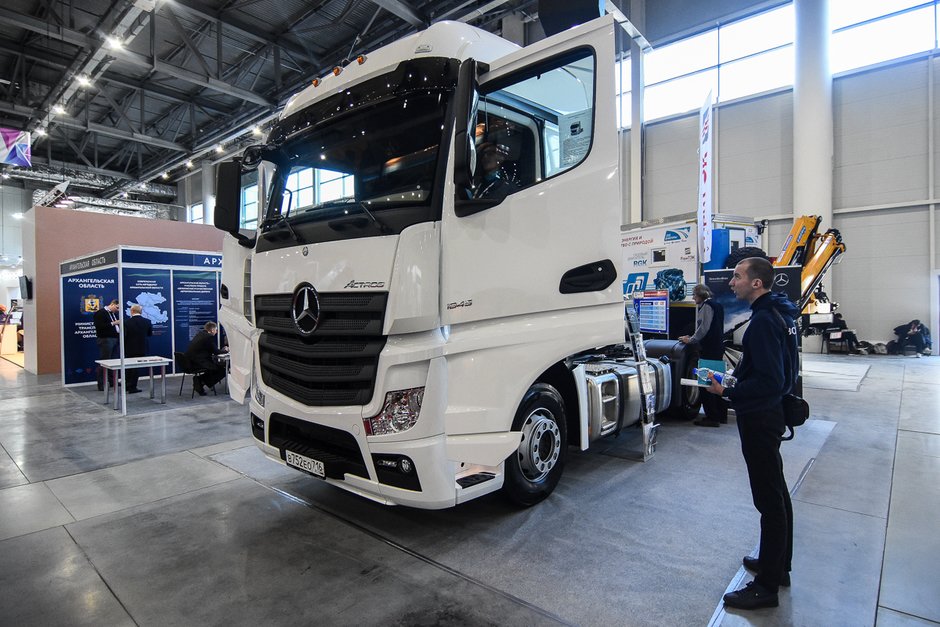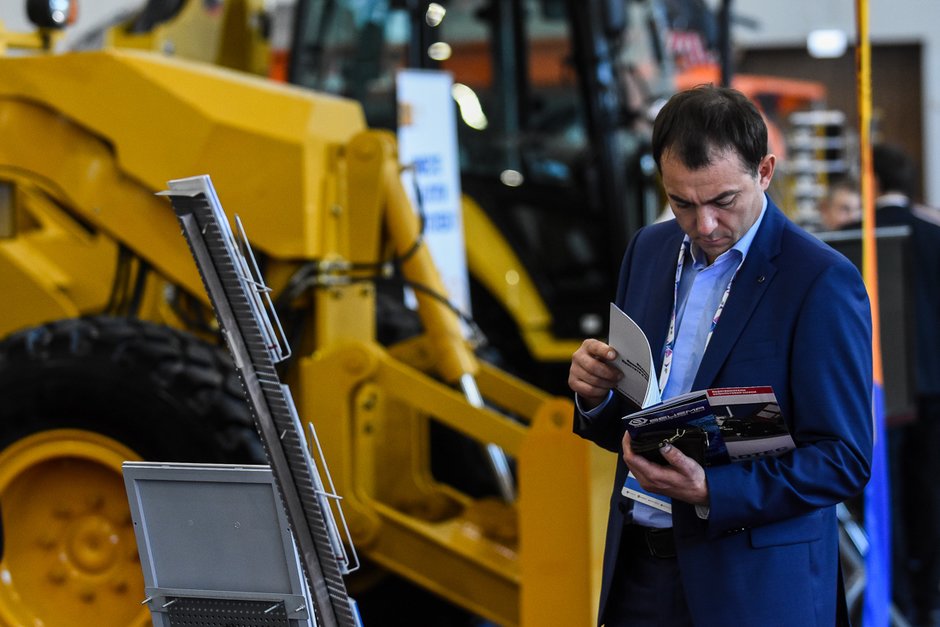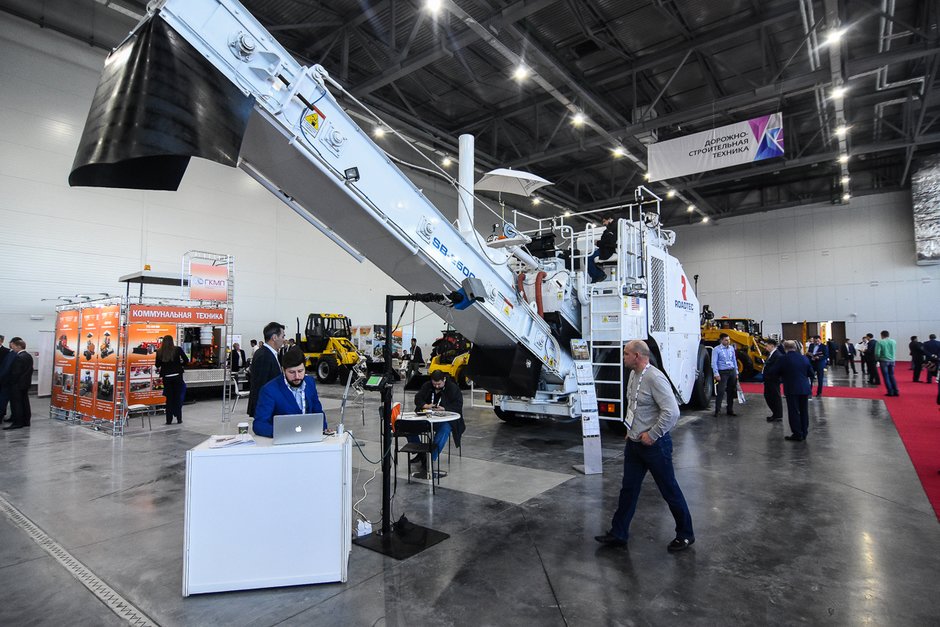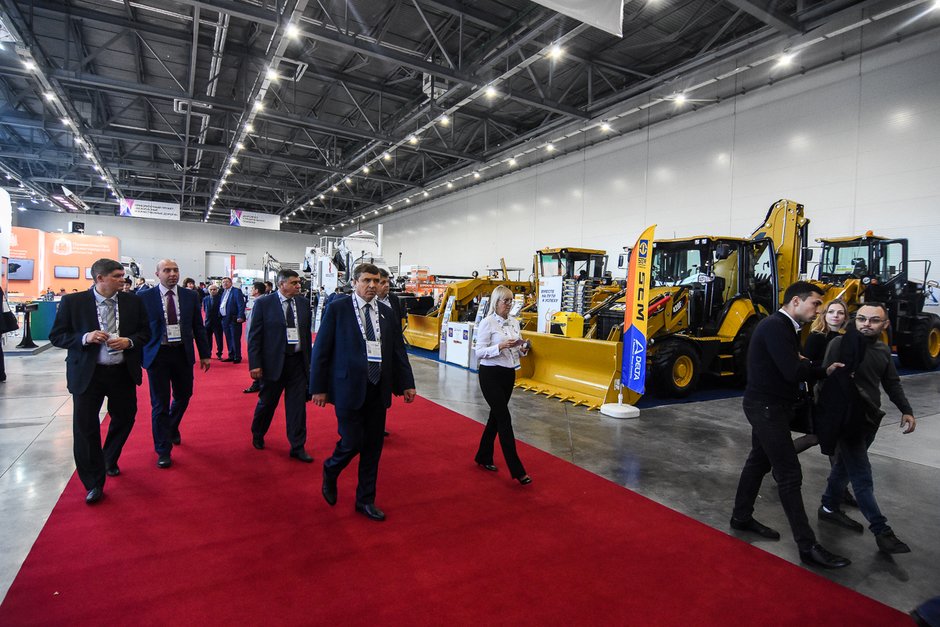Oh, roads: solution to major Russian problem and Kazan Expo’s endurance test
The second life of asphalt concrete, toll road to Moscow and queues in the gigantic exhibition complex
Kazan Expo built for WorldSkills 2019 opened its doors in Kazan on 16 October. The future venue of WorldSkills has gone through tests after accommodating a flow of people. Road 2018 International Specialised Exhibition is taking place in it – it's a new project of the Federal Road Agency in annual forums in different cities. It was decided to make a debut in the capital of Tatarstan dedicating the opening of the final section of Naberezhnye Chelny highway after reconstruction to it. Now the road connecting the two big cities will have four lanes. Realnoe Vremya tells the details.
Kazan Expo's debut: queues, queues and queues
Road international exhibition became a trial for the exhibition centre before WorldSkills competition. The venue, in fact, was built for it. This is why the participants were, first of all, interested not in the content of the event but its package. All night and the first half of the day were spent to tinker it – the floors, windows and doors were scrubbed from construction dust. The expectations of the exhibition centre were high, one wanted to see the second Innopolis. This is why the simple interior disappointed a bit.
Logistics wasn't arranged too. Realnoe Vremya's correspondent managed to come early and register without queues. But her colleagues and participants of the exhibition who arrived by 9.00 had to sit in traffic jams, near the barrier in the driveway, then at the entrance near the metal detectors, at registration points. The exhibition was to open at 9.00 with a panel discussion about road illumination. But there were some 20 people in the congress hall designed for a thousand people by that time, there was nobody to argue with at 10 o'clock. Not to lose time, it was allowed to go in without accreditation.
As it was said later at the press conference, 5,000 people registered for the exhibition, 2,000 came by 12 o'clock. However, it didn't work for road illumination – the hall was 10% full, though the topic was interesting.
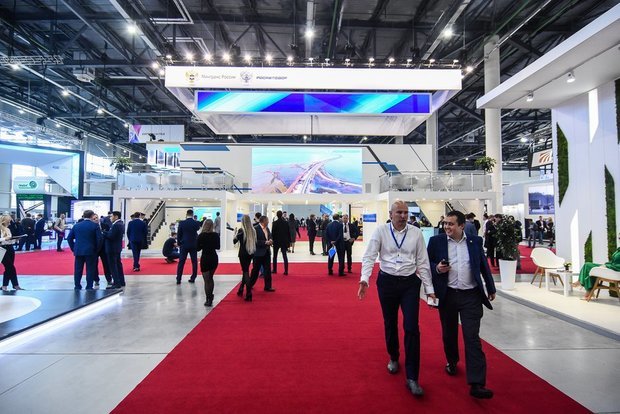
Might light be on: how the problem of dark highways will be solved
Oleg Ponaryin, director of the Supervision Department of the State Traffic Safety Administration of the Russian Ministry of Internal Affairs, said that 40% of traffic collisions happened in Russia at night take place because roads aren't in a due state. In addition, the speaker says in some regions this indicator reaches 60%. Apart from not illuminated roads, there are such violations as the absence of marking, road signs, retro-reflective elements on road constructions.
''November and December are the most critical months when nights draw in. And the riskiest time is from 20 to 24 o'clock,'' Ponaryin noted.
And if in cities roads are well illuminated almost everywhere, only headlight beams illuminate highways.
''We use old technologies – it's very complicated to lay a power supply line on highways. We have good experience in illuminating pedestrian crossings by solar batteries, we need to work on it further,'' director of the State Traffic Safety Administration of the Russian Ministry of Internal Affairs Mikhail Chernikov said.
The idea wasn't supported by Deputy Director of the Development Programme Department of the Russian Ministry of Transport Yevgeny Tkachenko. According to him, the night can last for a month in some regions, while stable and reliable electricity supply is needed. And only traditional methods are suitable here.
''These investments will pay back because there is nothing to spend electricity on at night. And the energy system will work steadily when a consumer appears at night.''
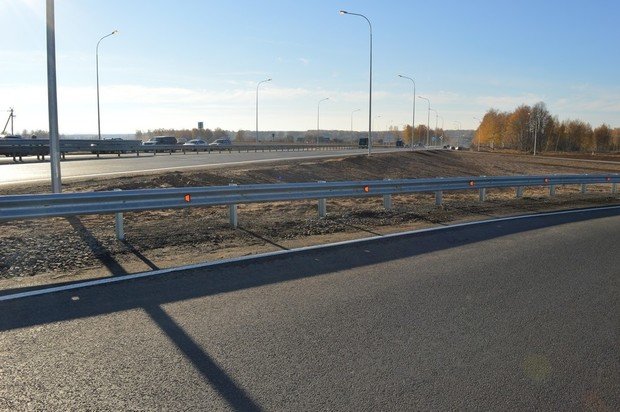
Asphalt concrete's second life
Solar energy doesn't fill a person's belly (though today there is an excess of the sun – almost a solarium due to glass walls of the pavilion). This is why everyone headed to the food court after the discussion ended. And here is a queue again. There were two halls. But only one of them functioned as a traditional one (there wasn't enough time to plug equipment in in the second one). One had to stay in the queue for at least 45 minutes to get the first, second courses and kompot. However, this didn't frighten anyone, and the queue didn't disappear until the canteen closed.
Meanwhile, the press conference of Deputy Director of the Federal Road Agency Igor Astakhov began. He told costs on use of federal roads had totalled 289,6bn rubles in 2018, while 117,21bn rubles had been spent on construction and reconstruction, without allocations to construct the Kerch Strait Bridge.
It's planned to put 275,7km of federal highways into operation after construction and reconstruction. And 8,450 km of roads will be put in order after repair and maintenance work. One of the sections of these 275 km of new roads are in Tatarstan. It's Kazan – Naberezhnye Chelny highway whose reconstruction began 10 years ago. And the final section was to open on 17 October.
''It's the last 30 km that have had four lanes with division now. It will allow to make the road safe and exclude oncoming collisions,'' Astakhov said.
The functionary was asked about new technologies in road construction. He called the repeated application of asphalt concrete was the most promising one.
''Each fifth tonne of asphalt is used again in Germany. And we don't apply asphalt concrete again apart from experiments. We need to develop the legal framework to enable the client to effectively use materials that have already been used. The volume of material needed for repair is comparable with possibilities of the construction industry. And not to create a deficit, we should use the material again,'' Astakhov thinks.
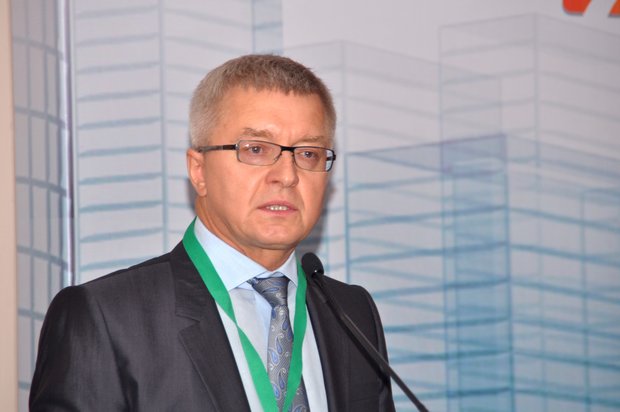
Kazan – Moscow toll road: without project but with transponder
National projects also presuppose asphalt will have a second life. There is a task to increase the volume of new technologies by 10% next year, which will be applied in road construction venues in national projects. ''I hope Tatarstan will be a leader here and reach not the 10% but more,'' Astakhov said.
''New technologies are to improve the endurance of roads, minimise consequences of changes in temperature. It's possible to expand roads' lifespan by 20% only due to an accurate selection of asphalt concrete composition. We can't deceive physical laws. We need to apply new technologies, with a higher quality, which means expensive materials. And we need to control all processes better,'' Astakhov revealed the secret of the solution to one of the Russian problems.
The chance to apply the solutions in practice will be given soon. As the reconstruction of Kazan – Naberezhnye Chelny highway ended, it means we can begin another ''construction the century'' – Moscow – Kazan toll road. They want to complete it by 2024, it will be one of the stages of the New Silk Road. The road must have four lanes, while track speed will total 120 km/h. It's probably everything known at the moment.
Igor Astakhov couldn't tell other details of the project, including road construction. He said Avtodor company dealt with it. The company, in turn, claimed the Russian Transport Ministry hadn't given the project to them yet and it was early to talk about something.
But a transponder with a picture of Kazan already appeared on Avtodor's stand next to transponders (radio device used to pay a toll) with a picture of cities with toll highways.
